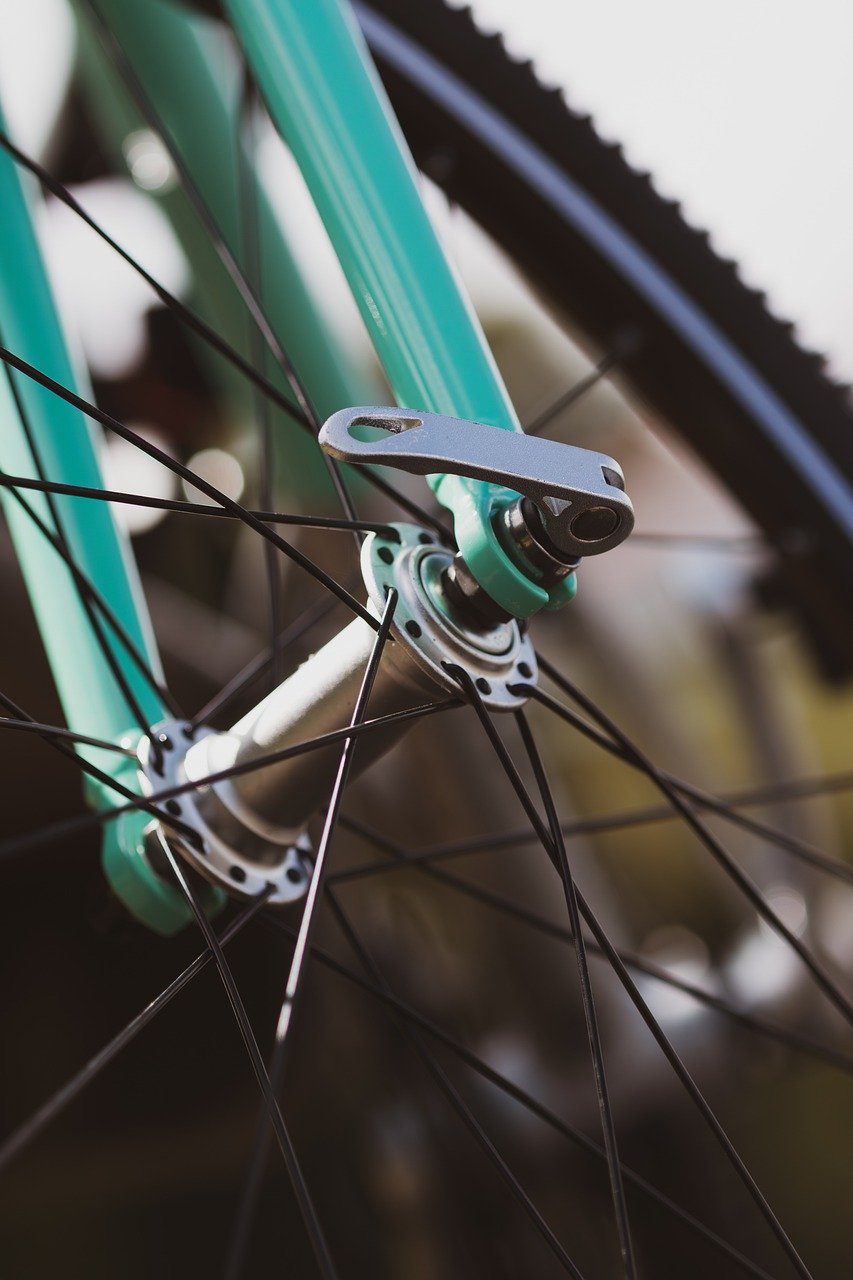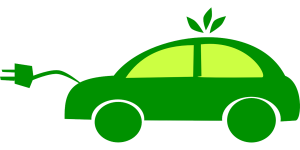Hey friends! In our latest journey together, we’ll explore “What Are The Benefits Of Biking Instead Of Driving?” Biking isn’t just a fun way to get around; it brings a multitude of benefits, from improving our health to reducing our carbon footprint. We dive into how choosing two wheels over four helps us save money, embrace a greener lifestyle, and enjoy the simple pleasure of feeling the wind in our hair. Let’s pedal forward into a brighter, more sustainable future! Have you ever wondered about the benefits of biking instead of driving? It’s a question many of us have asked ourselves, especially when we’re stuck in traffic or evaluating our carbon footprint. Biking offers a range of advantages that extend beyond just the obvious cost-saving aspects. Let’s delve deep into these benefits and discover why more people are opting to pedal over using the accelerator.

Environmental Benefits
Reduced Carbon Footprint
One of the most significant benefits of biking is its positive impact on the environment. Every mile we bike instead of drive reduces our carbon emissions. Cars emit a plethora of pollutants, including CO2, which contributes to global warming. By choosing to bike, we can collectively reduce these emissions.
| Activity | CO2 Emissions (grams per mile) |
|---|---|
| Driving | 411 |
| Biking | 0 |
Less Air Pollution
Biking doesn’t just reduce CO2; it also cuts down on pollutants like nitrogen oxides and particulate matter, which can cause respiratory issues and other health problems. By biking, we’re not only improving the air quality around us but also promoting healthier communities.
Lower Energy Consumption
Producing and maintaining bicycles consumes far less energy than cars. The entire lifecycle of a bike—from manufacturing to disposal—uses significantly fewer resources, making it a much greener option.
Health Benefits
Physical Fitness
Cycling is an excellent way to stay fit. It engages multiple muscle groups and strengthens our cardiovascular system. Regular biking can help in weight management, improve muscle tone, and enhance endurance. Plus, it’s a fun way to exercise!
Mental Health
Exercising outdoors, such as biking, can boost our mood and reduce stress levels. The physical activity releases endorphins—often referred to as “happy hormones”—which naturally uplift our spirits. The rhythmic motion of cycling can also be meditative, giving us a mental break from our daily stresses.
Boosted Immune System
Regular physical activity like biking enhances our immune system. It increases the circulation of white blood cells, making our body more efficient at fighting infections. Plus, exposure to the outdoors can help us get our daily dose of vitamin D, crucial for maintaining good health.
Economic Benefits
Cost Savings
Without the need for fuel, insurance, parking fees, and frequent maintenance, biking saves us a lot of money. The initial cost of a bike and accessories is much lower compared to a car, and maintenance is minimal.
| Expense | Annual Cost (Car) | Annual Cost (Bike) |
|---|---|---|
| Fuel | $1,500 | $0 |
| Insurance | $1,200 | $100 |
| Maintenance | $600 | $50 |
| Parking Fees | $500 | $0 |
| Total | $3,800 | $150 |
Reduced Healthcare Costs
By staying fit and healthy through biking, we can potentially lower our healthcare costs. Fewer medical visits and medications can save us money in the long run. The reduction in stress and improved mental health also contribute to fewer medical expenses.
Increased Property Values
Communities that are bike-friendly often see an increase in property values. People are willing to pay more to live in areas with good biking infrastructure because of the associated lifestyle benefits. This, in turn, can bolster local economies.
Social Benefits
Enhanced Community Interaction
Biking allows us to interact more with our surroundings than driving does. We can stop to chat with neighbors, visit local businesses more frequently, and participate in community events. This builds a stronger sense of community and belonging.
Reduced Traffic Congestion
More bikes on the road mean fewer cars, leading to less traffic congestion. This can make our cities more livable and reduce the time we spend commuting. Reduced traffic also means less noise pollution, contributing to a quieter, more peaceful environment.
Safer Streets
Increased biking promotes the development of safer streets. As biking becomes more common, cities invest in better infrastructure, including bike lanes and traffic-calming measures. This makes the roads safer for everyone, including pedestrians and drivers.

Personal Benefits
Greater Flexibility
Biking offers us greater flexibility than driving. We can take shortcuts through parks, alleys, or bike lanes that cars can’t access. This can often lead to shorter commute times, especially in congested urban areas.
Sense of Accomplishment
Each ride on a bike can give us a satisfying sense of achievement. Whether it’s reaching a fitness goal, like biking a certain number of miles, or completing a daily commute without the aid of a car, cycling can provide a sense of personal accomplishment.
Freedom and Independence
Biking offers us a unique sense of freedom and independence. We’re not bound by petrol stations, parking spots, or traffic jams. The simplicity and convenience of hopping on a bike and going wherever we want is liberating.
Adventure and Exploration
We can discover new places and routes when we bike. The slower pace compared to driving allows us to take in our surroundings more fully. Whether it’s a scenic countryside ride or exploring urban backstreets, biking turns commute into an adventure.
Practical Considerations
Weather and Clothing
One obvious challenge with biking is dealing with the weather. However, with the right clothing and gear, we can bike comfortably in various conditions. Waterproof jackets, thermal gloves, and good lighting can make a significant difference.
Safety Measures
Safety is a major concern. Wearing helmets, using lights, and following traffic rules are crucial for our safety on the road. Many cities are also adding more bike lanes and cycling-friendly infrastructure to make biking safer for everyone.
Bike Maintenance
Regular maintenance is important to ensure a smooth ride. We should be familiar with basic bike repair tasks like fixing a flat tire, adjusting brakes, and lubing the chain. Having a small toolkit can come in handy for on-the-go repairs.

Practical Tips for Starting Biking
Choose the Right Bike
Picking the right bike can make a big difference. Factors to consider include the type of terrain, distance you’ll be covering, and your level of fitness. Road bikes, mountain bikes, and hybrid bikes each have their pros and cons.
Plan Your Route
Mapping out your route before you start can help you avoid busy roads and find the safest, most enjoyable paths. Apps like Google Maps and specialized biking apps can provide bike-friendly directions.
Start Slowly and Build Up
If you’re new to biking, it’s wise to start slowly. Begin with short rides and gradually increase your distance and intensity. This will help you build endurance and get accustomed to biking.
Join a Community
Joining a local biking club or community can provide support, motivation, and valuable tips. It’s also a great way to make new friends who share your interest in biking.
Conclusion
Biking instead of driving offers a multitude of benefits that touch various aspects of our lives—including environmental, health, economic, social, and personal well-being. Each ride contributes to a better, healthier, and more sustainable future. So let’s dust off our bikes and hit the road, enjoying all the advantages that biking has to offer. Whether you’re a seasoned cyclist or a beginner, the journey and the benefits are worth every pedal stroke. Let’s make biking instead of driving a part of our daily routine and reap the rewards together.



